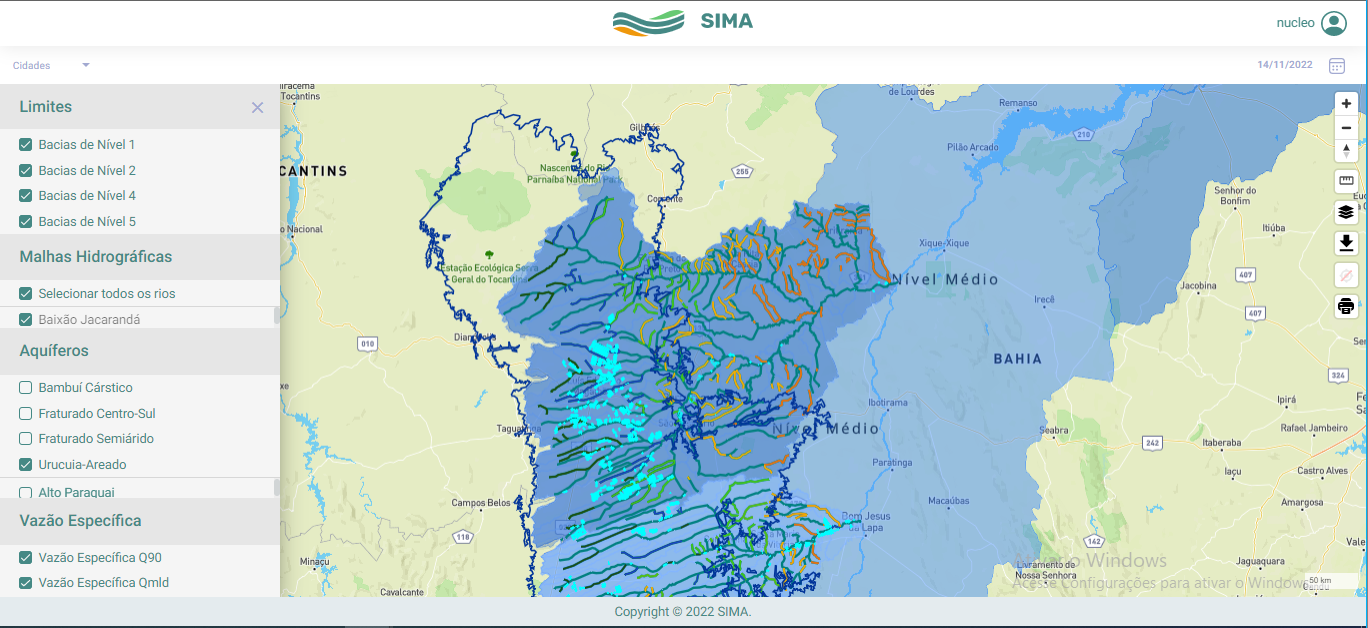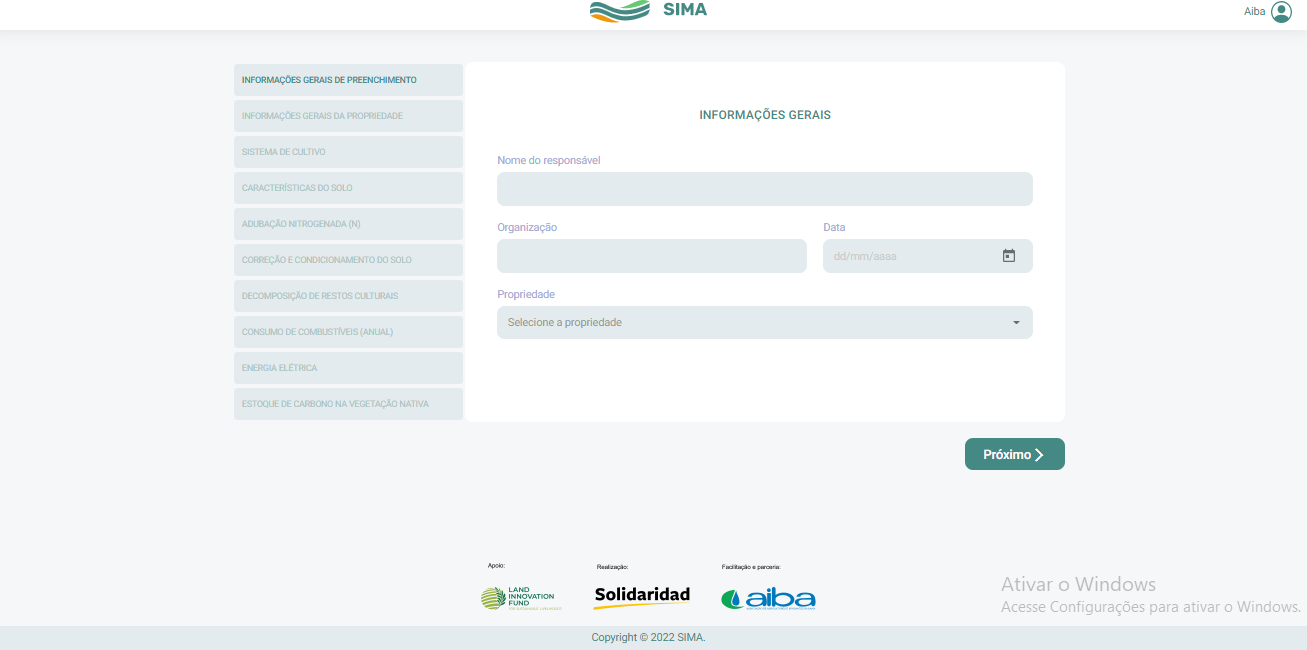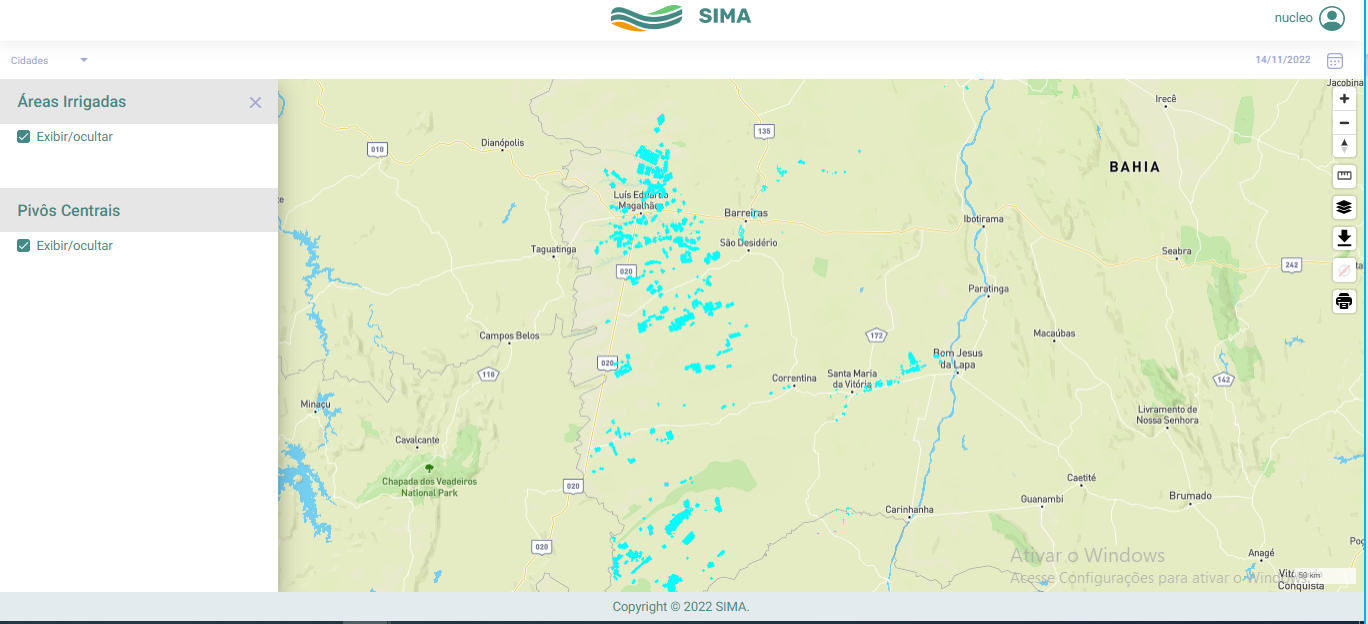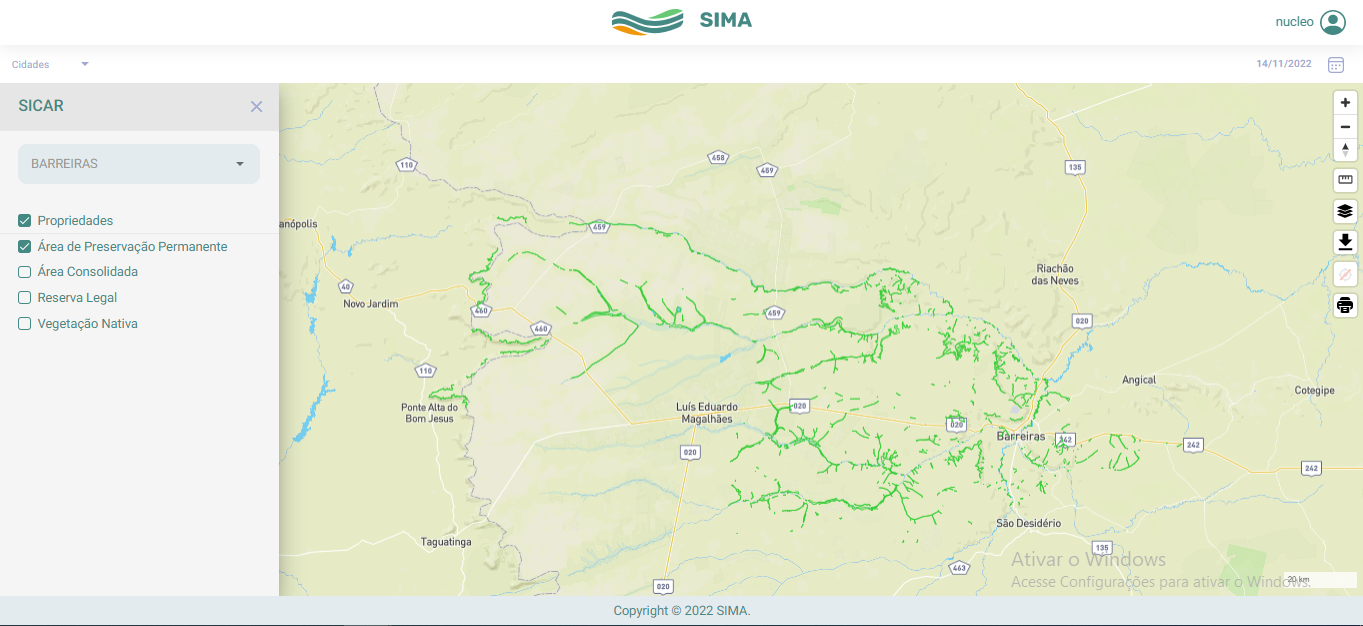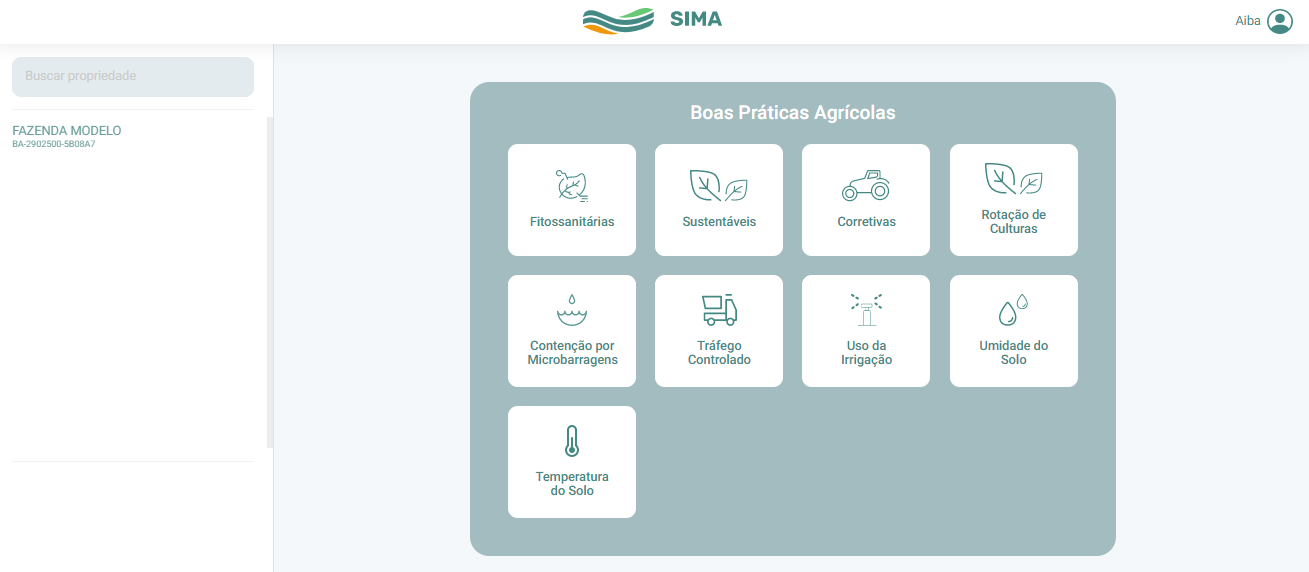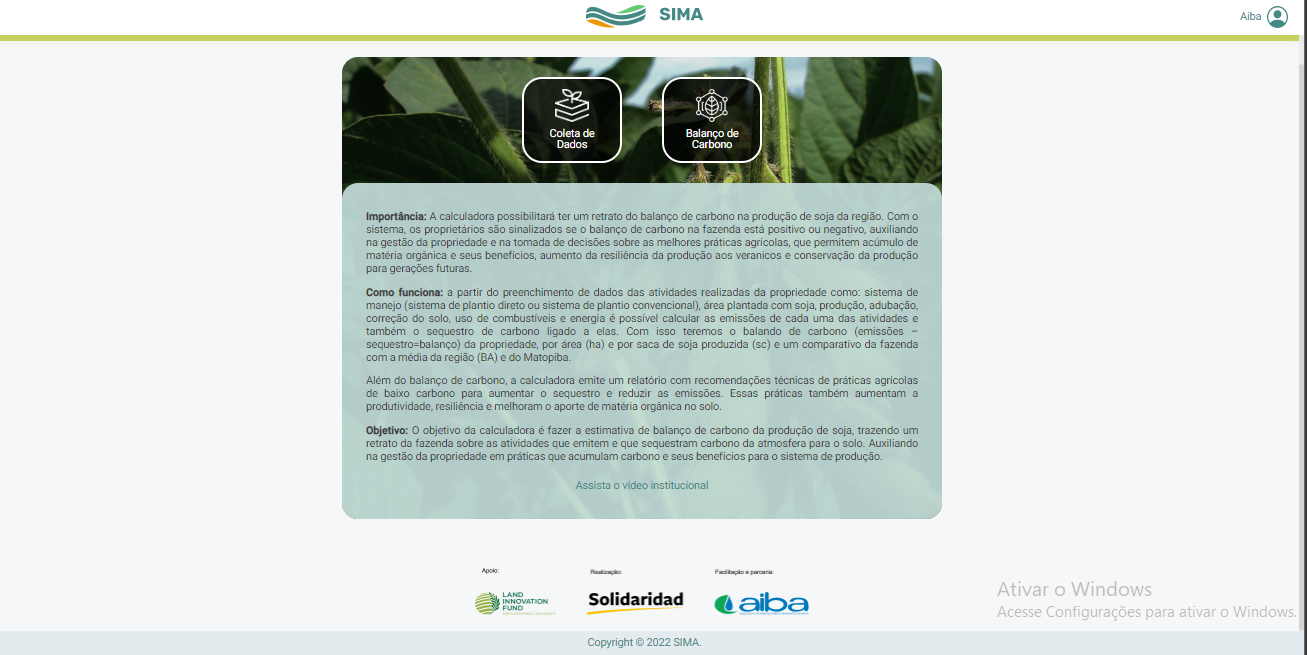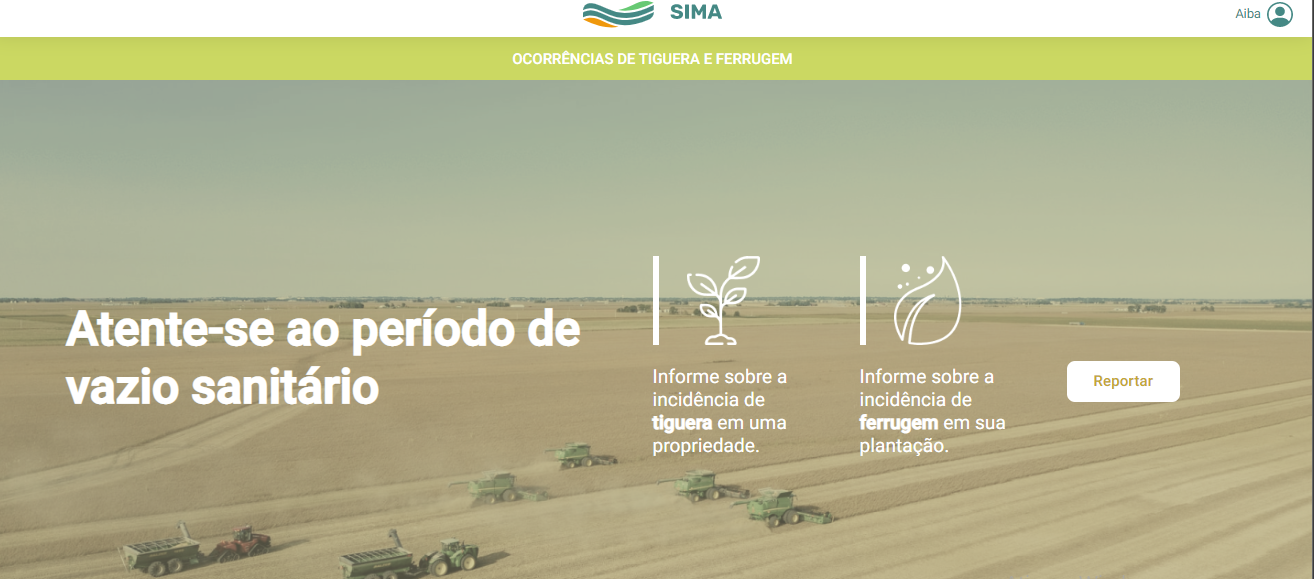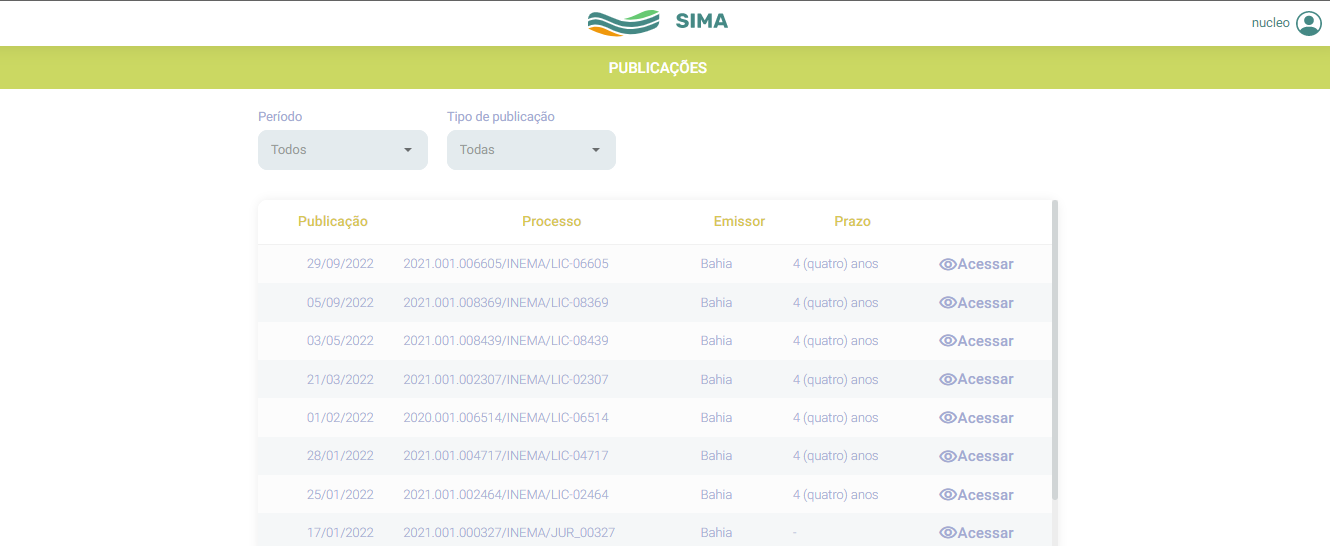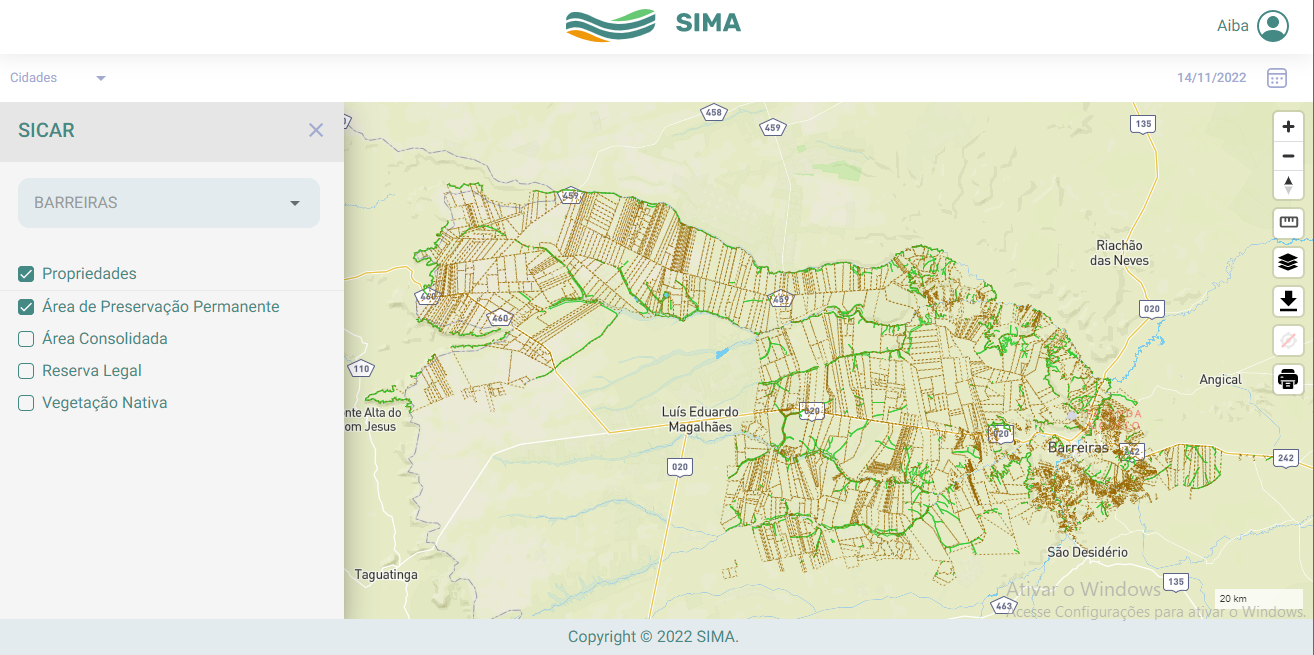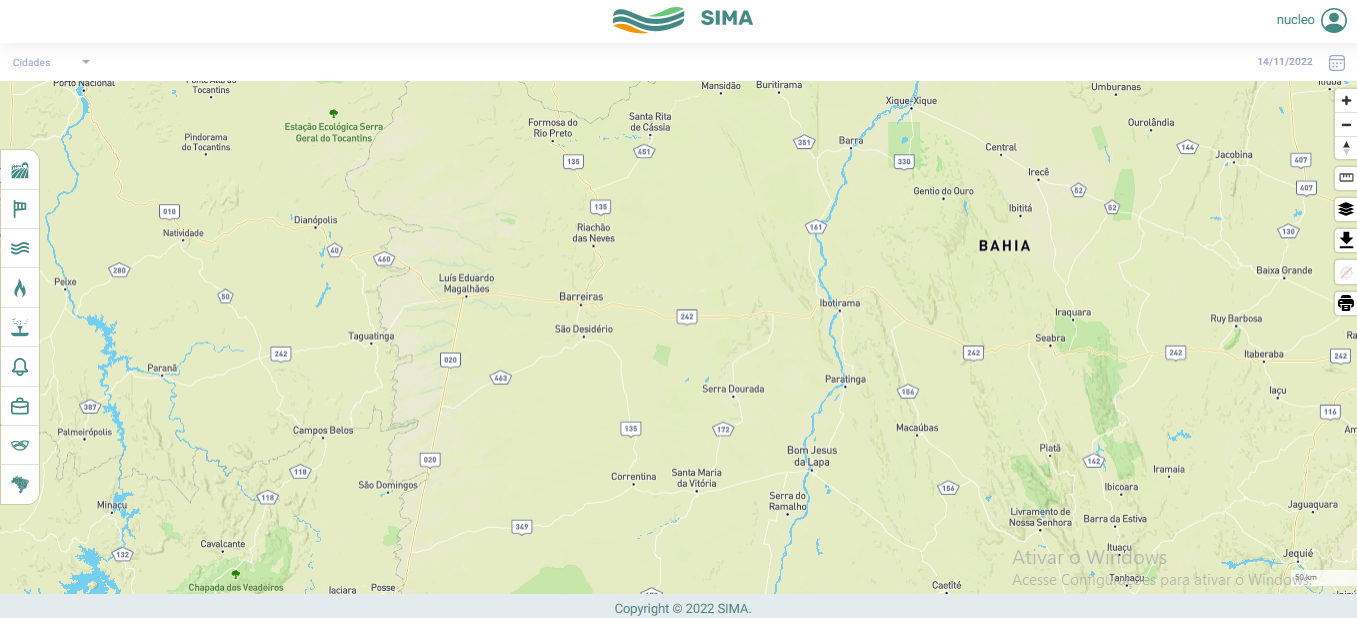International partnership builds an open-source digital platform for sustainable agriculture
Senai Cimatec and the Association of Farmers and Irrigators of Bahia (AIBA) – with technical and financial assistance from the Land Innovation Fund – have joined forces to create a tool for the territorial and environmental management of farms in Western Bahia.
Access to the platform and source code for the Territorial Intelligence and Environmental Monitoring System (SIMA) is now available on the website of the Western Bahia Innovation and Sustainability Program. Developed by Senai Cimatec especially for the Association of Farmers and Irrigators of Bahia (AIBA), in collaboration with the Solidaridad Foundation and with support from the Land Innovation Fund, the system is a tool that gives members total access to general information on their farm and provides other stakeholders with an open-source management platform that can be adjusted or expanded to meet local needs. More than 160 farmers on more than 600 farms have already signed up to the system, to use its territorial and environmental data on more than 800,000 hectares in western Bahia.
SIMA has modules focused on water-resource management, land use and best agricultural practices, along with other data useful for managing farms. The system also has a carbon calculator, developed by the Solidaridad Foundation, to help select best agricultural practices and promote sustainable development.
The system's 49 features include information on farm boundaries, municipality and watershed limits, meteorological and fire risks, data from the Environmental System of the Rural Environmental Registry (SICAR) and the Chico Mendes Institute for Biodiversity Conservation (ICMBio), information on indigenous lands, archaeological sites and ecological corridors, among other aspects.
With its open-source design, the SIMA can be publicly shared and modified, allowing other programmers to further improve the tool. "The strategy opens the way for dissemination of sustainable environmental and territorial agricultural management," according to Ashley Valle, director of the Land Innovation Fund. "The initiative is in line with the Fund's objective of building a landscape of innovation for sustainability, with room for dialog and participation by all possible players," she adds.
Open-code system:
AIBA is responsible for managing and distributing the platform as an open system. "By sharing SIMA's source code, others gain access to the platform and can help improve its capabilities. The collaborative system enhances the tools' positive impacts and boosts AIBA's role on an agenda that combines innovation with sustainability for agribusiness," says Enéas Porto, the Association's Sustainability Manager.
The SIMA system's functionalities can thus be enhanced to meet specific demands of other agricultural associations, startups, companies or institutions interested in aligning their own output with the international market's growing demand for transparency and traceability. The system's collaborative format also enables the development of other modules, such as water monitoring or phytosanitary alerts, to make it even more robust for farm management.
Solução integrada:
Through exchanges among the AIBA, Senai Cimatec and Solidaridad Foundation teams, with the participation of many farmers, this comprehensive solution was designed to facilitate management of soy farms in one of the country's most productive agricultural areas, and to encourage the adoption of sustainable, low-carbon practices, conducive to mitigating climate change. The Territorial Intelligence and Environmental Monitoring System (SIMA) is one of four projects run by the Innovation and Sustainability Program in Western Bahia, with support from the Land Innovation Fund. The platform is available on the program's website.
"We recognize the importance of western Bahia for agribusiness and for local farmers hoping to align the production of some of Brazil's major commodities with international demands to preserve and restore the biome. That's why we joined forces and invested in integrated projects with positive impacts on the region's soy production chain," says Ashley Valle, director of the Land Innovation Fund. "With the Fund's technical and financial assistance, AIBA, the Solidaridad Foundation and Senai Cimatec have undertaken projects to strengthen Western Bahia as a benchmark for sustainable agribusiness actions nationwide," she adds.

